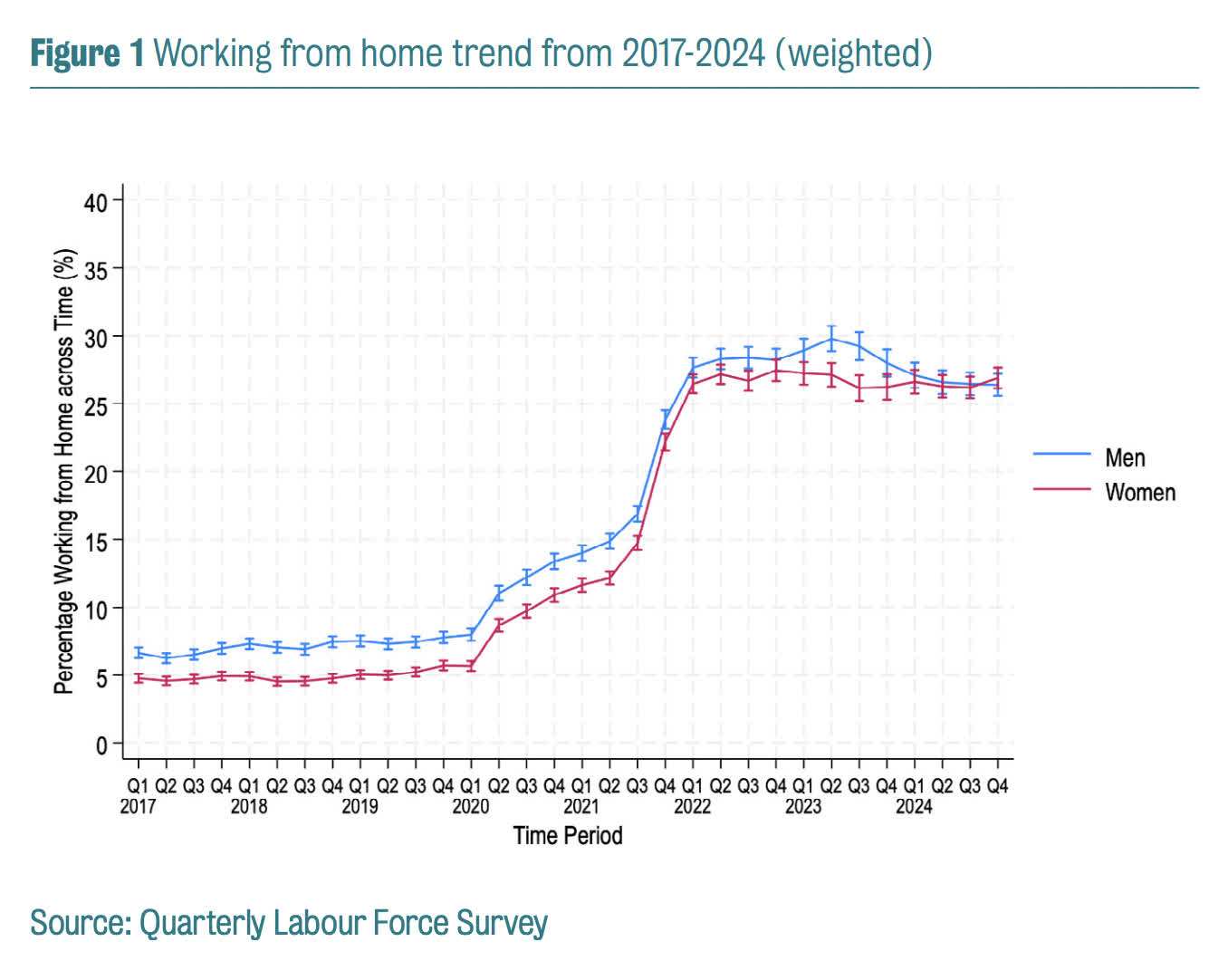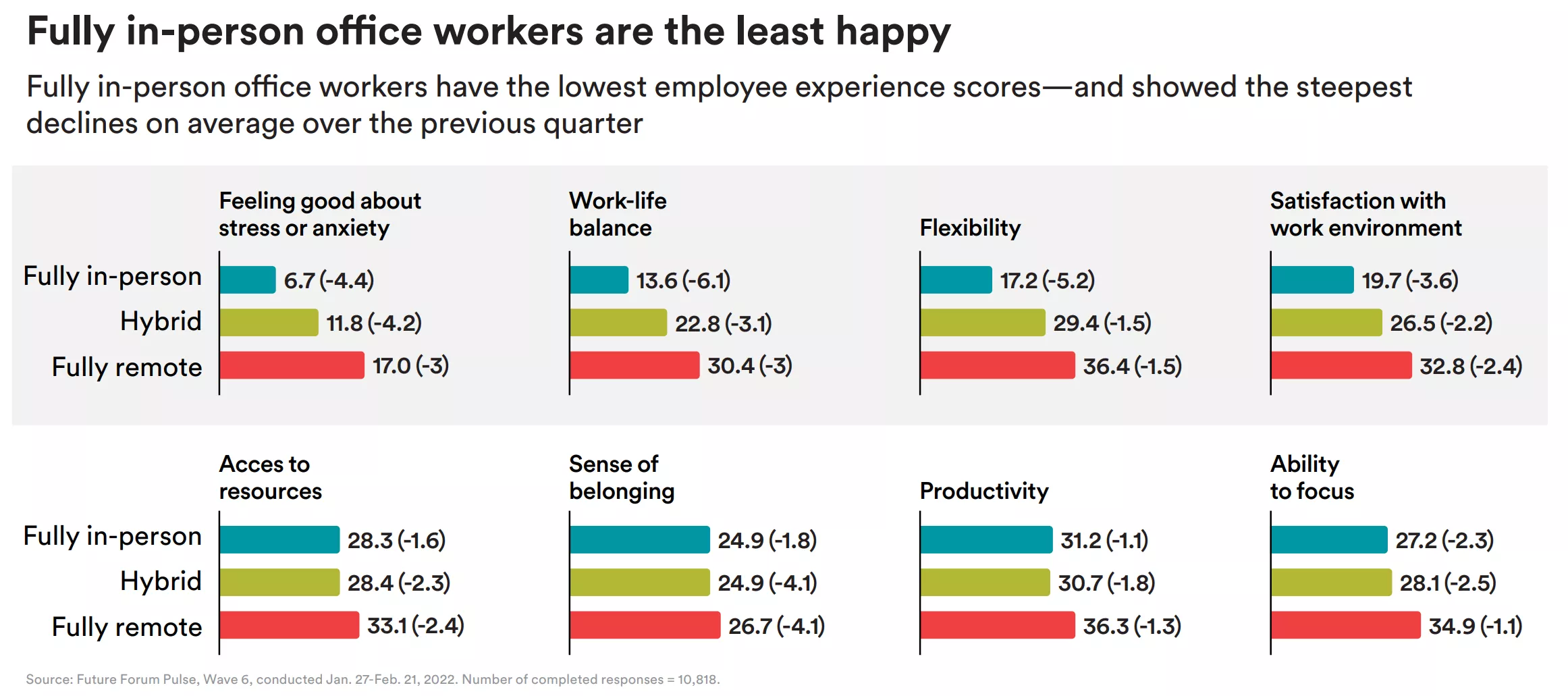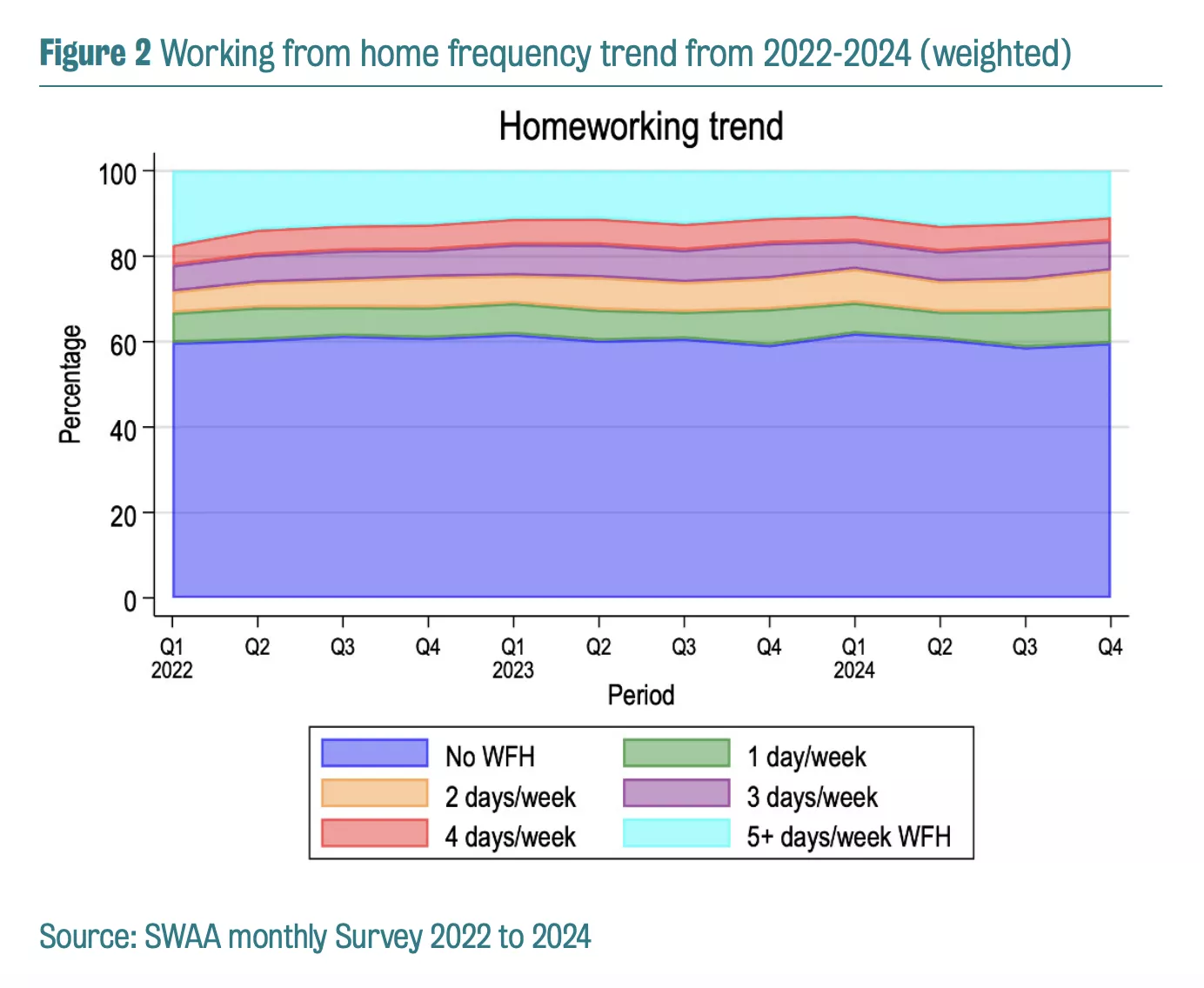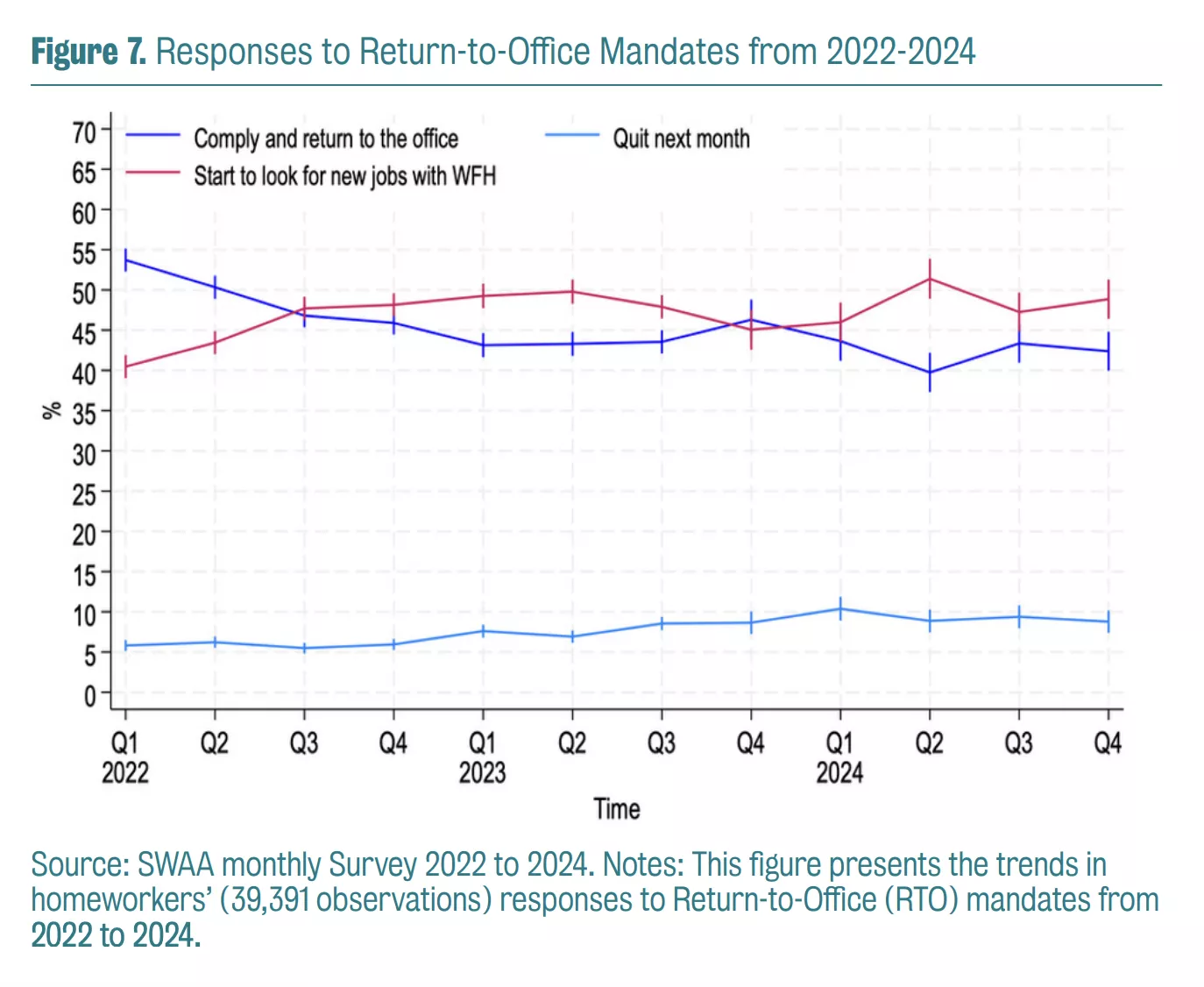In brief: As companies aggressively force staff back into the office full-time, more employees are refusing to comply with the demands. A recent study has found that fewer than half of UK workers would agree to a full-time return-to-office (RTO) mandate, with women and parents the most likely to refuse.

The report comes from researchers at King's College London (KCL) and King's Business School. They analyzed over a million data points from the UK government's Labour Force Survey (LFS) and 50,000 responses from the Survey of Working Arrangements and Attitudes (SWAA) UK.
The biggest takeaway is the "growing worker resistance to rigid office mandates." Just 42% of workers would agree to return to the office full-time, down from 54% in 2022 – it seems the longer people work from home, the less willing they are to give it up.
Between the start of 2022 and late 2024, the number of people who said they would look for a new job rather than go back to the office full time jumped from 40% to 50%. The number of workers who said they would quit straight away went from 5% to 10%.
Women were more likely than men to quit rather than go back to the office full time – 55% said they would look for another job and 8% said they'd quit outright. Among men, 43% said they would search for other work and 8% would quit on the spot.
Parents with school-age or younger children were also more resistant to full-time RTO mandates. Just 33% of mothers of younger kids said they would return to work full time.
The study also found that black and minority workers were most likely to return to the office full-time when asked, "possibly reflecting job insecurity and workplace discrimination," KCL said.
According to the SWAA data, one in four (25%) UK workers reports working remotely at least three or more days a week, while two in five (40%) work remotely at least once weekly. It found that while employers in the country have increased the average number of work from home days since 2022 from fewer than one day per week in 2022 to about 1.3 days in 2024, employers are now less likely to allow fully remote working.
Many tech giants started introducing hybrid work following the lockdowns, requiring employees to spend at least three days in the office each week. There was plenty of pushback, but most workers reluctantly agreed rather than being forced out of their jobs.
Recently, however, companies such as Google, Intel, Amazon, Nothing, and others have decided they want to keep a close eye on workers 100% of the time they're on the clock, which means bringing them back to the office full-time. CEOs and execs like 60-hours-per-week fan Sergey Brin claim working in an office improves productivity, but studies and surveys have shown that often isn't true.
More workers say they'll quit instead of going back to the office full time




